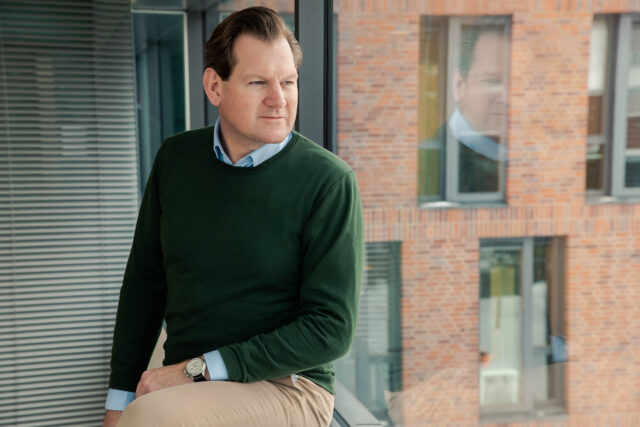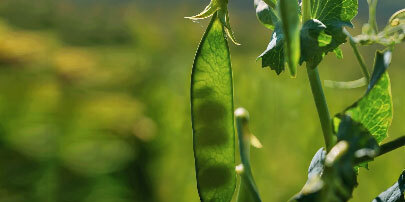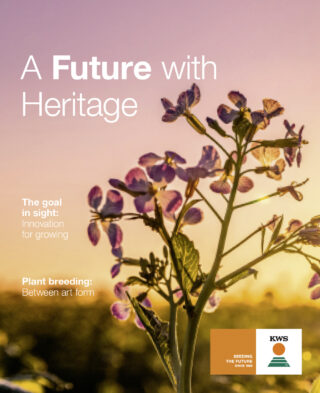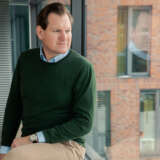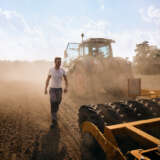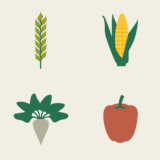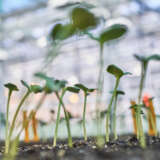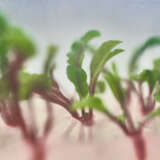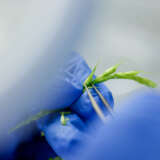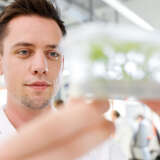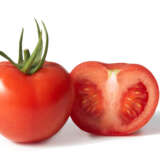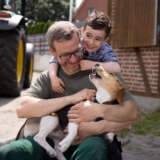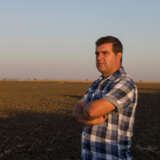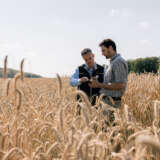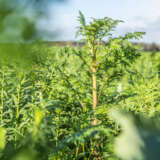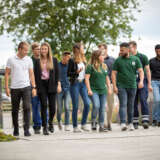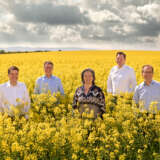In conversation with Spokesperson of the Executive Board Dr. Hagen Duenbostel
“As a company with a tradition of family ownership, we think in terms of generations – sustainably and oriented toward the future.”
Global agriculture is changing and it’s looking for solutions. What answers is KWS offering? In this interview, Spokesperson of the Executive Board Dr. Hagen Duenbostel provides an overview of the current situation – and takes a look at the future.
Agriculture is in a state of upheaval. What do you see as the greatest challenges – for KWS as well?
The agricultural industry is complex. In addition to that, a broad range of general requirements apply to seed development worldwide. Global climate change, less cultivated land per capita and limited resources along with a growing world population and the related food demand are all certainly posing challenges for agriculture.
The list is long, and all the issues are important and interrelated. Where does KWS come in?
Addressing the challenges of climate change remains one of our central tasks. During the COVID-19 pandemic, topics relating to climate protection have seemed to have slipped from focus a bit. But during this time KWS has not reduced its efforts to work on forward-looking solutions and approaches. The European Union’s Green Deal and Farm-to-Fork strategy constitute a roadmap, and its implementation means tasking the entire industry – beyond the European borders as well – with important responsibilities. KWS will continue to make a global contribution to reducing the use of pesticides and fertilizers, cutting greenhouse gas emissions and promoting organic farming and biodiversity. Over the years, our work has focused on important aspects of sustainability and environmental protection.
KWS will continue to make a global contribution to reducing the use of pesticides and fertilizers.
The equation sounds simple: Produce more with less. What does the KWS approach to sustainable solutions look like?
“Sustainability starts with the seed” is a crucial core statement for us. Because plant breeding plays an initial role, it also carries an important responsibility: It’s a key technology within agriculture and consequently must be part of the solution. We see this as an ethical obligation and assume this duty. We believe our core tasks include securing and increasing yields through the use of well-adapted varieties while maintaining the same amount of cultivated land as well as reducing the use of resources such as pesticides and fertilizers by making continuous progress in plant breeding. This is also what motivates us each day. Along with other objectives, our products and solutions aim to contribute to reaching the overarching goal of reducing the use of chemical crop protection products in Europe by 50 percent by 2030. In this way, plant breeding can make a tangible contribution to achieving the targets society has set.
Is innovation the key to success here?
The need for innovative technology in plant breeding continues to grow. Last fiscal year we devoted a significant proportion of our revenue – €252 million – to research and development. We view this as an investment into the future growth of our business as well as our contribution to achieving environmental targets and meeting the food needs of 10 billion people by 2050.
How much can legal barriers slow down progress in plant breeding?
Regulatory measures and changing social norms make the situation more complex. Regulatory restrictions in the area of agrochemicals continue to grow, while the use of new breeding methods is virtually impossible, especially in Europe. And legal requirements are not only increasing, they also vary around the world. We adapt our strategies to the prevailing circumstances; we do, however, consider the use of modern breeding methods as well as fair access to innovative technologies and products as imperative.
We adapt our strategies to the prevailing circumstances; we do, however, consider the use of modern breeding methods as imperative.
How much does public acceptance play a role in this regard?
The public is taking a more critical view and demanding more from their food; organic farming is gaining importance while acceptance of conventionally produced food is declining. But on the whole, agriculture is being viewed too much as the cause of the problem rather than part of the solution. By engaging in sustainable, transparent work and open communication, we want to help strengthen agriculture‘s standing in the public’s eye. Ultimately, it’s also a matter of once again reaching out to one another to better understand each other’s needs.
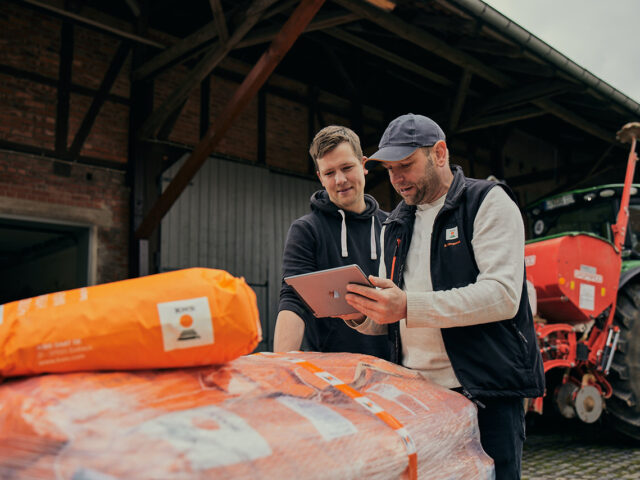
It takes many years to breed a variety then develop it into a marketable product and distribute it. Remaining patient and thinking ahead are fundamental aspects of KWS’s business model. To what extent is this reflected in your corporate strategic planning?
Our strategic planning forms the basis for the KWS Group’s further development. Planning is regularly carried out on a rolling basis and takes a long-term view. As mentioned earlier, we consider our strategic success factors to be our extensive research work and efforts to breed new, high-yielding varieties. This supports the continuous expansion of our global presence to further strengthen our know-how in regional markets, including their respective climatic characteristics.
Could you mention a few specific undertakings?
We are continuing to focus on the seed business and on expanding a diversified portfolio. Thanks to our strong innovative power, we believe we’re well positioned in both small and large crop markets. Our strategy of continuous development also includes entering the vegetable seed business as a new driver of growth. We also want to further expand our know-how in the area of digital technologies. With an eye toward smart farming, we’re focusing on innovative tools that deliver precise control and monitoring to help our farmers increase yields in the most environmentally friendly way possible. Long-term thinking, sustainable actions: That’s the recipe for success here, too.
KWS background
Sustainability is part of our DNA.
Not just talk, but action: We have agreed on concrete sustainability targets that we will implement by 2030.
